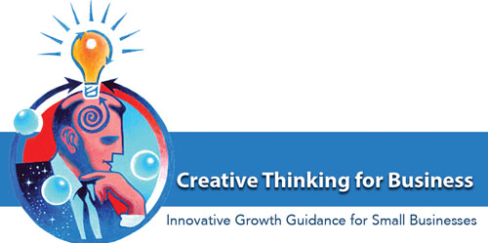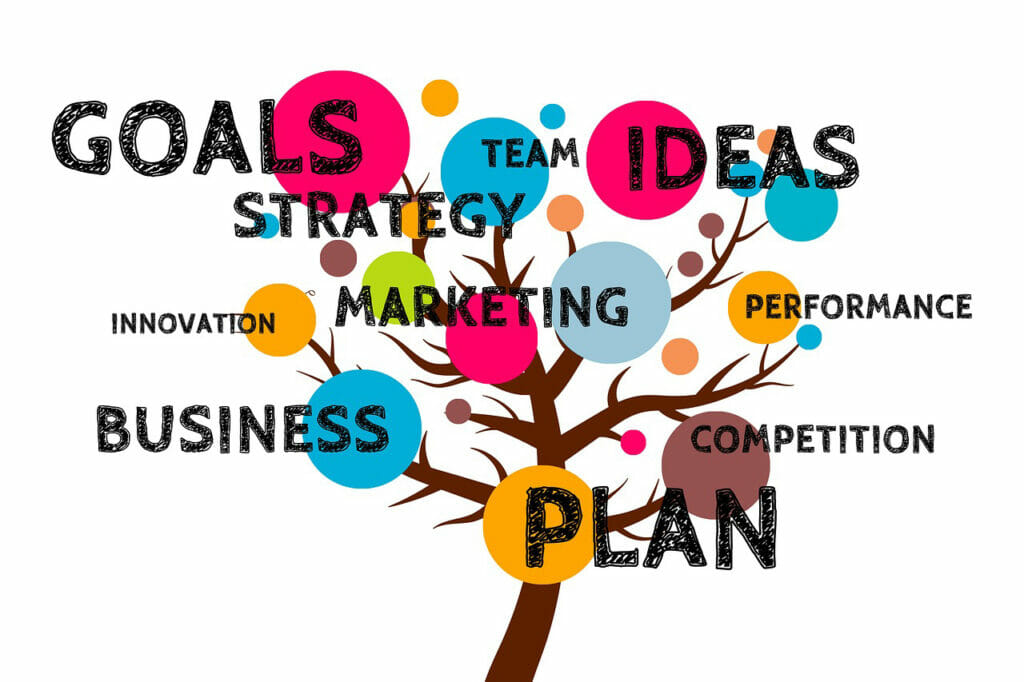Much like the sales process, business owners often misunderstand the concepts of business development. Ask one person, and they’ll say business development is sales. Another may say it is marketing.
Scott Pollack, a contributor to Forbes, had an excellent definition of business development. Scott wrote, “Business development is the creation of long-term value for an organization from customers, markets, and relationships.”
The fact is, a strategy for business development will incorporate sales, marketing, partnerships, and client relationship building.
The key phrase, that Scott pointed out, which I’ve seen to be consistently effective for business development over the years is “the creation of long-term value.”
The long-term value your business creates for the people you serve is an essential key to any business development strategy.
What is client value creation?
When you hear client value, your first thought may be the value proposition. However, the value creation I’m talking about here is related to your business and the service or products it delivers not a marketing message.
The value I’m talking about relates to the benefit a client gains when engaging with your business.
What tangible difference does every client receive when engaging with your business? In other words, how is there situation different today than before they came to you?
That is what value creation provides; the tangible difference you make with every client you serve.
No matter if you’re in the business to business (B2B) or business to consumer (B2C) arena, the value clients receive by working with your company is the most significant factor for growth in any strategy you can employ for business development.
The role of value in business development strategies
As consumers, whether as business or personal buyers, we never purchase products or services.
We purchase the difference that product or service makes in our life or business. We are buying results and outcomes.
That means your business development strategy must focus on outcomes and results; the value you create in every client interaction. Results and outcomes are the roles of value in business development.
Value is the foundation that all your business growth effort stands on.
Value is the reason clients buy.
Value is why partnerships emerge.
Industry value makes you a standout component in a much larger sector of business, that of your industry.
If your business development strategy is sputtering, you’re likely missing a robust articulation and delivery of value.
Clients, industry, and relationships are all part of business development
In business development strategy creation, clients, industry, and relationships all must be considered to have a complete strategy to follow.
Let’s start with our clients.
Think of the client journey. Prospective clients find out about your service. Next, your potential clients conduct research to gain understanding and build trust through the information you provide to decide to talk to you.
Then there is the sales conversation and the promise of value that you will deliver.
The client buys in, wants the change you offer, and engages your business.
The service is delivered. You ensure client satisfaction. Your new client confirms they received the difference you promised to deliver.
Then your client relationship management program kicks in. You continue to care about them.
You ensure your service delivered as you promised at the onset of our engagement.
You find out more about what that client needs to reach another level they desire.
You support them in that journey and offer to assist them in getting there, when appropriate.
You celebrate life milestones with them.
You provide them with information and ideas that continue to benefit them.
Those are a few of the points of continuous value delivery in your strategy for business development.
The industry you’re in is also part of your business development program.
Think about this for a moment. In every industry, there are stand-out companies. These are the companies people talk about and compare as a profile to emulate.
A large part of your business development plan could focus on how your company can stand out in your industry.
When people say, I wish everyone did business like COMPANY X, and you are COMPANY X, there is a lot of business development expansion available to you.
To become COMPANY X, however, you need to stand out. You can stand out by offering information and ideas that others are too busy or don’t have the experience to deliver.
It’s hard work to stand out in your niche. Perhaps you’ll never be the Amazon of your industry. But what can you do to stand out in your industry?
When you think about it, you’ll discover that you have expertise, experience, knowledge, or ideas other people in your industry don’t have. Share that to stand out.
Now, you’re offering value to your industry. That leads to industry talk. That industry talk leads to new clients. You’ve become an industry standout, and your business development strategy has a new way to grow revenue as the company your peers talk about.
Relationships are another essential piece of your business development strategy.
For years it’s been said, “It’s not who you know. It’s who knows you.” That’s true to an extent. It’s not all about you. It’s all about how you can serve the interests of the people you meet, whether in your industry or not.
When you meet someone, either locally or on Linked In, for example, what is the first thing that comes to your head?
Is it, “Can this person do business with me?” If not, do you ignore them?
That’s a big mistake that many business owners make. They don’t see the value developing relationships beyond, what’s in it for me.
Can you imagine what your life would be like if everyone you talked to only wanted to hear from you if there was money you could spend with them?
There is no value in that for either party.
Relationships are business development currency that you can build on and grow by mindfully nurturing relationships.
Strategic partnerships as a business development strategy
One business development strategy many business owners see as a good idea, but few execute is in the area of strategic partnerships.
To use strategic partnerships successfully, embrace the mindset of cooperation over competition.
No matter what industry you’re in, the opportunities to develop strategic partnerships are plentiful.
Look at how you can cooperate with another business rather than try to compete.
How can you extend what you offer by partnering with another company to your mutual profitability?
Adding dollars to top-line revenue is what business development is all about. Strategic partnerships can accomplish that with no money invested out of pocket upfront.
Collaborate for mutual profitability is the only requirement to create strong strategic partnerships
Creating a strategy for business development
A complete business development strategy focused on creating value for the clients you serve is a crucial component of rapid growth. Start your planning by knowing the value you provide to clients in every interaction.
Your industry is another vital part of the value creation matrix. How can your business stand out in the industry? Can you offer perspectives in a trade journal, participate and offer value at industry events, or be an example of great client-care that people talk about? Standing out in your industry or niche can reap colossal business development results since you’re the company people talk about.
Don’t forget strategic partnerships — the no-cost way to grow business organically through the mindset of cooperation over competition.
If you have questions about creating a business development strategy, I’d be happy to answer them. Just comment below, and I’ll send you a reply.
I also want to give a special thanks to Scott Pollack
for his great quote in his Forbes article on business development.


Thanks for sharing such an informative blog